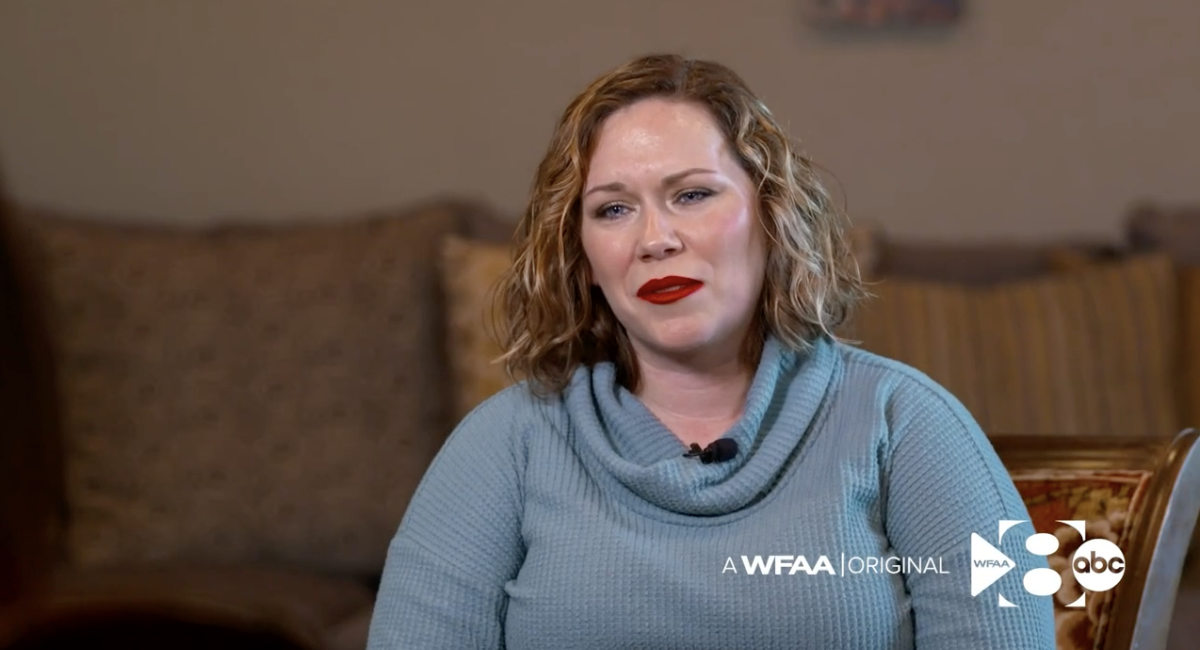Caroline Antoun and her now ex-husband are in a legal battle in Texas over three of the seven embryos they created during the in vitro fertilization (IVF) process. During their divorce, a judge ruled that the embryos are the property of her ex-husband; however, Antoun sees them as people and believes post-Roe v. Wade laws support this.
After welcoming twins through IVF, the remaining three embryos were kept frozen in case the couple decided to have more children. The former couple’s IVF contract, typically signed before a fertility clinic will begin the IVF process, states that in the event of divorce, the embryos would go to her ex-husband.
Antoun explained that in hindsight, she did not understand the gravity of that contract. She said she also expected the Supreme Court decision in Dobbs v. Jackson Women’s Health Organization overturning Roe v. Wade, handed down just five days before the divorce trial began, to impact the judge’s decision regarding her embryos.
“We said, the laws are going to change. So, let’s be mindful of that,” Antoun explained of the argument she and her attorneys made to the judge. But the judge upheld the IVF contract and the embryos went to Antoun’s ex-husband as his property.
“It really was clear with the Dobbs decision and with Texas being a trigger law state that very clearly defined life as beginning at fertilization,” Antoun said. “Frozen embryos are a fertilized egg.”
However, the end of Roe did not change how frozen embryos and the IVF process are handled — even in states like Texas where most preborn children (from the point of fertilization) are now protected from abortion. Seema Mohapatra, a professor at SMU Deman School of Law, and one of the U.S.’s leading experts on IVF law, explained, “Frozen embryos are considered property in Texas, just like any other kind of personal property, like your car.”
The fall of Roe did not change this and Texas law protecting human life from fertilization only applies to embryos in the womb, not frozen in a lab.
“If we say we value life and the whole idea of overturning Roe v. Wade and the trigger laws said we’re trying to protect life, but we’re still treating life over here as if its property that can be sold and bartered and done away with, that doesn’t match up at all,” Antoun said.
Texas legislators have attempted to pass laws protecting frozen embryos and treating them as persons, but have failed to do so. Mohapatra thinks this is because such a law could affect fertility doctors and clinics, ultimately regulating IVF. Currently, embryos are destroyed more often than they are implanted, meaning fertility clinics and doctors are knowingly destroying human lives — but those lives have no protection under the law so there are no consequences. A law protecting all embryos would change that.
“So we’ve seen in Louisiana and Mississippi – two states where personhood provisions were proposed — one of the reasons they failed was these doctors said we’re going to leave your area and no one is going to have access to this care,” said Mohapatra.
Antoun has filed an appeal to the judge’s decision, meaning that her three embryos can not be destroyed, donated, or given away in the meantime. She is also raising funds for her legal fight to recognize embryos as people.
She wrote, “A judge divided [the embryos] up with all of our assets, ignoring and terminating my rights to be a mother to my unborn children by giving or ‘awarding’ them to my ex. The same court who 6 months earlier did not see fit to give my husband more than 13% of time with our current children. My unborn children were denied the right of personhood and I was denied my right to continue to be their mother that day.”







